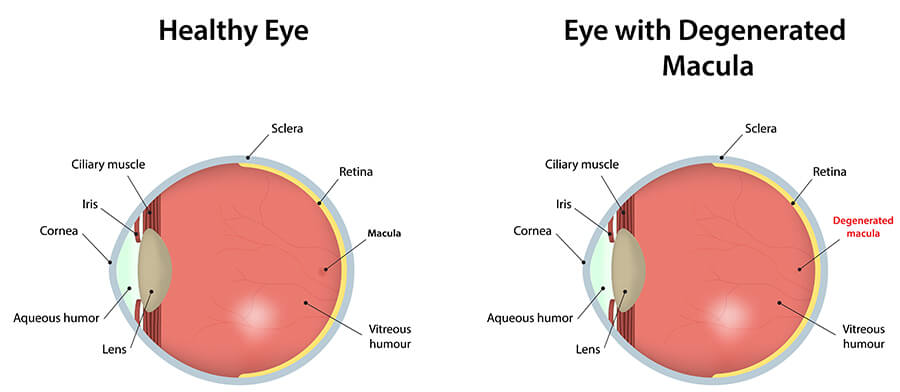
 Age-related macular degeneration (AMD) is a common eye disease associated with aging that gradually destroys sharp, central vision. It is one of the leading causes of legal blindness and vision impairment in older Americans.
Age-related macular degeneration (AMD) is a common eye disease associated with aging that gradually destroys sharp, central vision. It is one of the leading causes of legal blindness and vision impairment in older Americans.
The progression of AMD can be slow or rapid, but the deterioration of central vision generally occurs over a period of a few years. If you experience the following, see your Eye M.D. right away:
Although the exact cause of macular degeneration is unknown, several studies have shown the following individuals may be at risk:

The “dry” form of macular degeneration affects approximately 90 percent of those with AMD. Studies have found that high levels of zinc and antioxidants play a key role in slowing the progression of dry macular degeneration in advanced cases.
The “wet” form affects only 10 percent of those with AMD, but it accounts for 90 percent of all severe vision loss from the disease. For these individuals, conventional laser treatment and photodynamic therapy (PDT) treatment is used. PDT is used to reduce the risk of moderate to severe vision loss in patients with a few very specific forms of “wet” macular degeneration. Other experimental treatments that are being investigated include, intraocular antineovascular injections and the insertion of a “retinal chip” to restore vision loss.
Early detection and treatment is the best defense against losing your vision. If you are at risk for macular degeneration, see your eye doctor for a complete eye exam at least every one to two years. If your vision has been reduced, low vision rehabilitation resources can help you maintain an excellent quality of life.
Please call 815-485-2727 or make an appointment online.